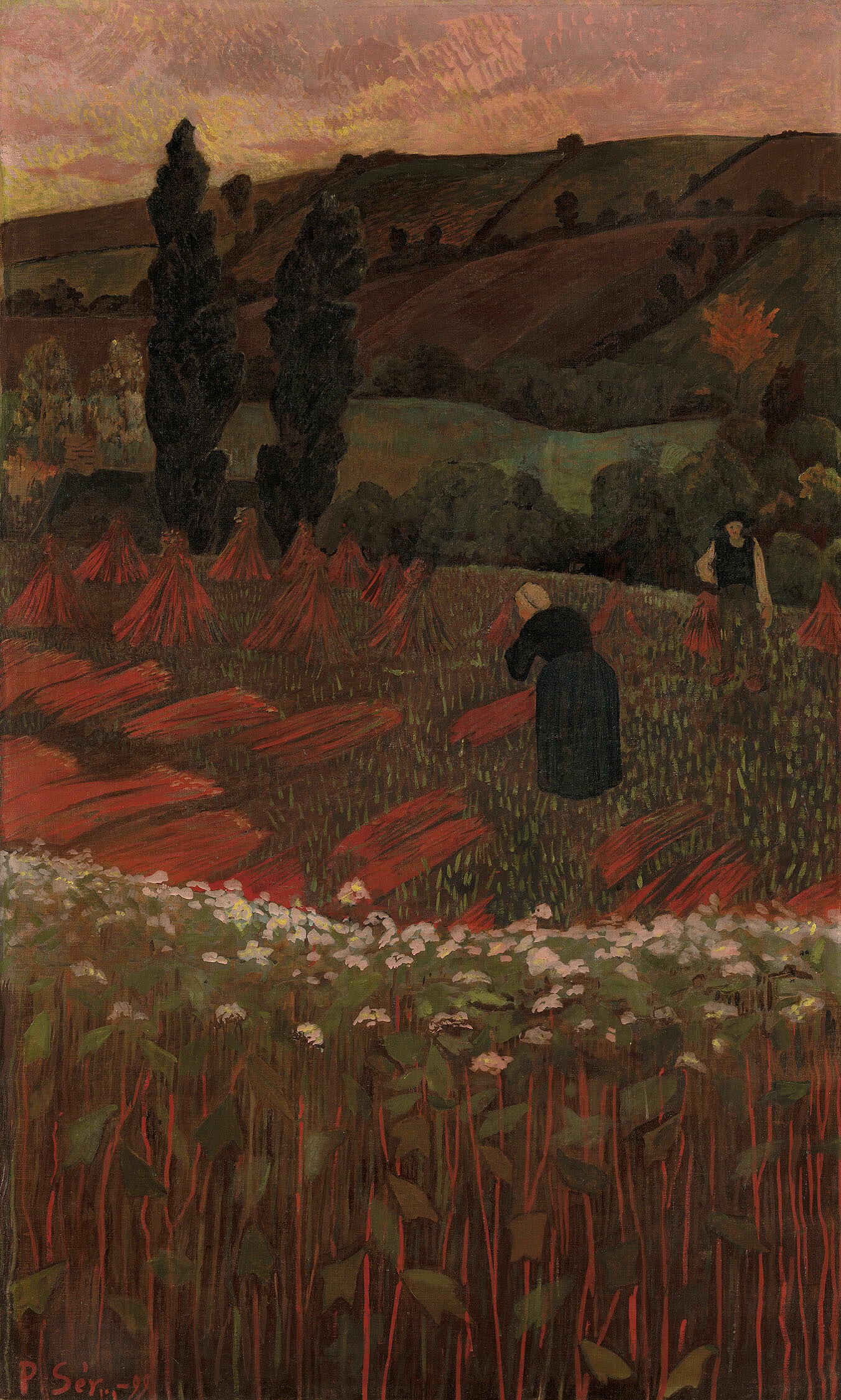Harvust

Paul Sérusier: The Harvest of Buckwheat (1899)
"We will not need to make time then …"
Late Summer emerges from a hot and dusty sameness anyone would swear might be neverending. Crops start ripening and, in their fashion, quickly overwhelm anyone engaging with them. Narrow windows hold promise, a precious week for some and only slightly longer for others. One starts gathering rosebuds while they may. Miss a day, and I might miss the whole year. Time becomes the premium resource, for the calendar already seemed full. Each successive crop squeezes in anyway, sideways and unsympathetic toward any whining. One learns early, and the lessons stick through frequent repetition, be prepared to sacrifice anything to preserve the Harvust.
Each year I try to hone my technique. I become a process engineer innovating to put less strain on my back or exert less effort to produce the same result. I understand the rudiments of process efficiency, but these manifest differently in a seemingly infinite array of possibilities. Some years, some crops go easy—the following year, inexplicably, with greater difficulty. Muscle memory retains more than I can crisply recall. Set myself in the middle of a pile of green chile, and I can't seem to help myself; I just start peeling. I had to learn almost everything the hard way, and I am still learning that way. Perhaps there never was any other way to preserve anything but through sweat and tears.
Much of the effort amounts to cognitive exertion, though. However physically trying canning a bushel of something seems, the mind game's worse. Each crop casts its unique spell on its preserver and holds him enthralled. The tools must be lined up in order; the clutter just so. The sequence and rhythm of the work must be in synch, or the effort will seem for naught. A dull blade more than complicates; it renders impossible something done dozens of times before. Patience will be tried again when water inexplicably refuses to boil. It seems like trying to write a story but first needing to invent the pencil. Nobody expected to be inventing. We were supposed to be writing!
Days disappear into a haze of jars and lids and loads into and out of the canner. Finished product clutters countertops before the end even thinks about coming into view. The Muse enters wondering what's for supper. I explain that I might have time to think about supper tomorrow evening but that she's perfectly free to see what's leftover in the fridge. I, myself, will skip supper in favor of abject exhaustion. I might be hungry in the morning after dreaming of jars lining up in endless succession. I'll put that last batch into the canner before first light, and it will seem to take forever to get started.
Tomato Harvust's coming next, and there's no proper preparation possible. It, too, will overwhelm our capacity, but there's no realistic alternative. We dare not miss this opportunity, so we will not miss it. This time of year, we receive practice in making time, an ancient understanding still germane. Time will come back into synch again, after the final crop, after the last jar. Then we can just open up a jar leftover from last summer and swallow some time preserved for supper. We will not need to make time then but savor its abundance.
©2023 by David A. Schmaltz - all rights reserved


